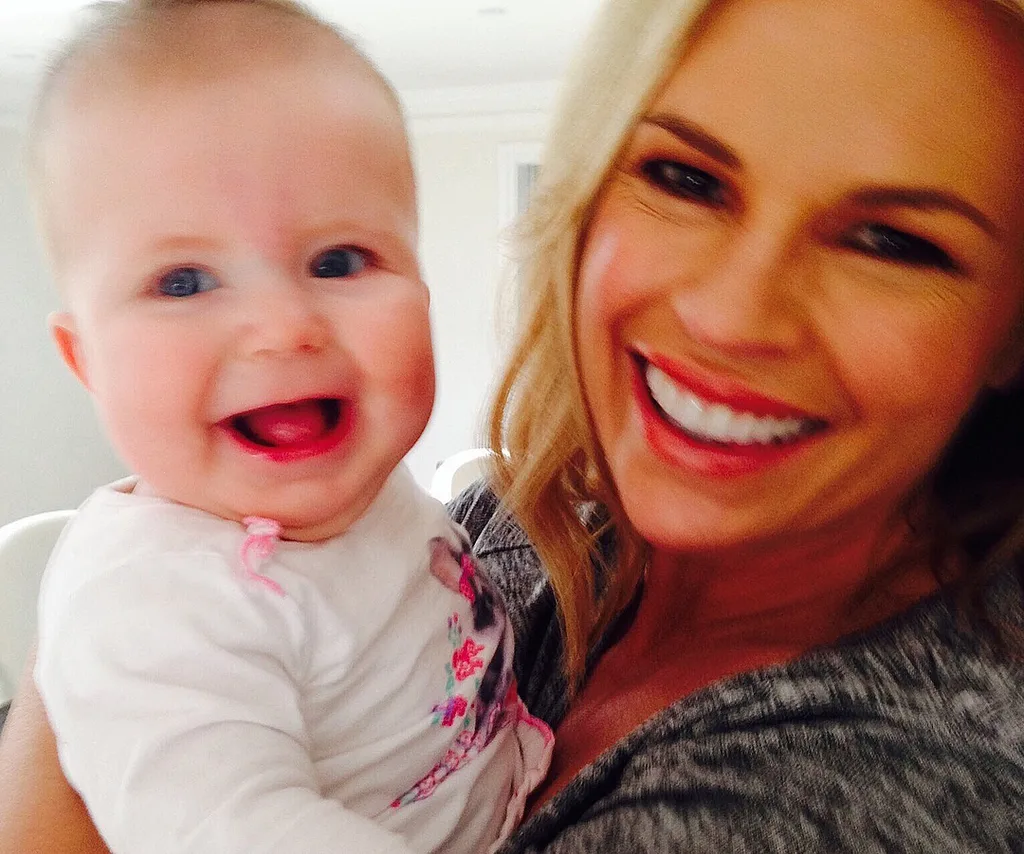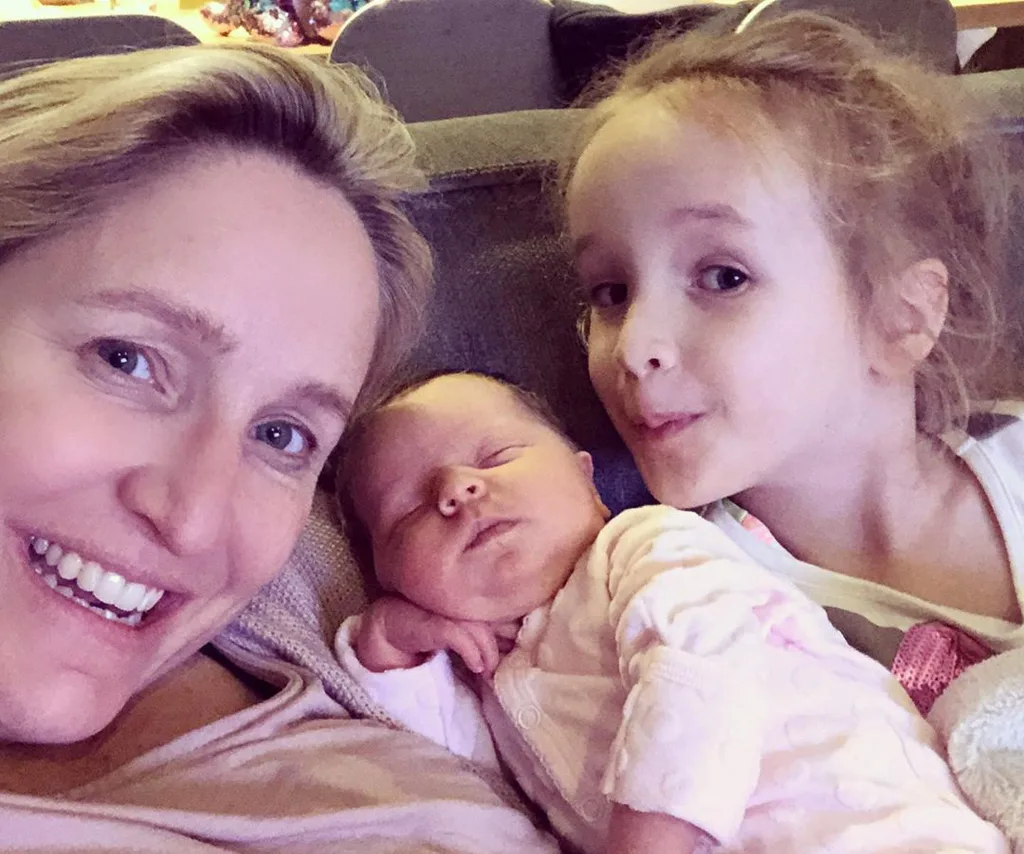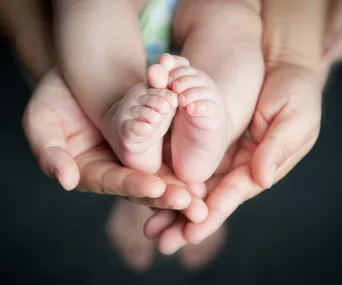One in six Australian couples experience infertility, which is defined as taking longer than 12 months to conceive if you’re aged younger than 35, and six months if you’re older than 35.
And According to Associate Professor Peter Illingworth, Medical Director of IVF Australia, infertility is on the rise.
“As women delay having children, they find it harder to conceive naturally in their late thirties and early forties,” he explains.
“The growing incidence of obesity in young women is also likely to have a significant effect on fertility. Higher rates of sexually-transmitted infections, particularly chlamydia, may also see more women turning to IVF in the future.”
Here are 10 things Professor Illingworth says you should know about IVF:

Channel Nine host Sonia Kruger has been incredibly open about her IVF experience. She had her daughter via a donor egg.
(Credit: Instagram)1. Success rates
Australian fertility clinics achieve amongst the highest success rates in IVF in the world. However, an individual couple’s chance of success depends on a number of factors such as the cause of infertility, age and lifestyle.
As a general guide, there is a 50 percent chance of conception per IVF treatment if aged under 30. This goes down to a 20 percent chance for your first IVF treatment over the age of 40.
2. When women’s fertility really starts to drop
A woman’s fertility starts to drop dramatically from the age of 35. Diminishing egg numbers is one issue, diminishing quality is just as important. Again, egg quality starts to decline from age 35.
A simple blood test, known as AMH, will tell a woman if she has a normal number of eggs for her age but tells us little about the quality of the eggs remaining.
3. Men’s fertility can also reduce with age
While women are born with all the eggs they will ever have, men are continually producing new sperm. However, as men age, the quality of the genes in their sperm deteriorates.
After a woman’s age, male infertility is the single largest factor influencing a couples chance to conceive. Problems include increased DNA damage, irregular shape and reduced quantity and movement. This becomes more common in men over the age of 50.
There is also evidence linking older fathers with increased risk of their child being affected by rare genetic disorders such as autism.
IVF is more affordable in Australia than most developed countries. An IVF treatment cycle costs about $2000 following a Medicare rebate.
However, clinics can vary by hundreds of dollars so it’s wise to shop around. Added costs include medications and day surgery costs.

The Project host Fifi Box conceived both of her daughters via IVF.
(Credit: Instagram)5. The physical and emotional cost
Many women describe the experience of IVF as physically and emotionally demanding.
Physical side effects can include headaches, tiredness, bloating and mood swings.
Many find the experience stressful as they anxiously await the outcome.
Reputable clinics offer specially trained and qualified counsellors to help people through the emotionally challenging aspects of IVF.
6. Timing
There are two main IVF treatment cycles — a short cycle known as an antagonist cycle which takes about four weeks with treatment commencing on the first day of a woman’s period; or the more common agonist cycle, which takes about five weeks with hormone suppression commencing on day 22 of a woman’s cycle.
Patients must wait two weeks following the transfer of an embryo to the womb for a blood test to confirm pregnancy.
7. You can’t cheat age (or the age of your eggs)
A woman is at her most fertile in her twenties and early thirties. Fertility specialists around the world are working hard on perfecting a technique to freeze eggs so that a woman can have a child at a time when she is ready.
To date, this is still regarded as experimental and is mainly offered to women about to undergo chemotherapy or other medical procedures that will affect their future fertility.
8. The increase of reliance
Social changes mean couples are leaving it later in life to have children and more and more are turning to IVF for help to conceive.
However, there is no evidence to suggest that women are deliberately delaying having children because of IVF. They are simply waiting until they have met Mr Right and are financially able to meet the costs of child rearing.
9. Risks
IVF has been around for more than 30 years. It is a very safe procedure, with no long-term risks to mother or child. The most serious medical complication is Ovulation Hyperstimulation Syndrome (OHSS), affecting one percent of women.
It occurs when a woman over-responds to hormone treatment and produces too many eggs. However, the lower drug doses used nowadays mean that this is much less common. In addition, specialists have become much better at predicting which woman are at risk of OHSS, and the medical profession is well trained in recognising and managing symptoms.
WATCH BELOW: Liz Ellis opens up about her IVF struggle. Story continues after video.
10. There are no guarantees
IVF is a highly effective treatment in overcoming many causes of infertility such as low-sperm count, blocked fallopian tubes and PCOS. However, there are no guarantees.
In fact, it is estimated that half of the people who try IVF will not be successful. Counselling has helped thousands of people come to terms with a life without a hoped for family and counselling is recommended when couples face the difficult decision to stop treatment.
Related link: Feeling stressed? Cast your vote on what’s stressing Australian women most.




